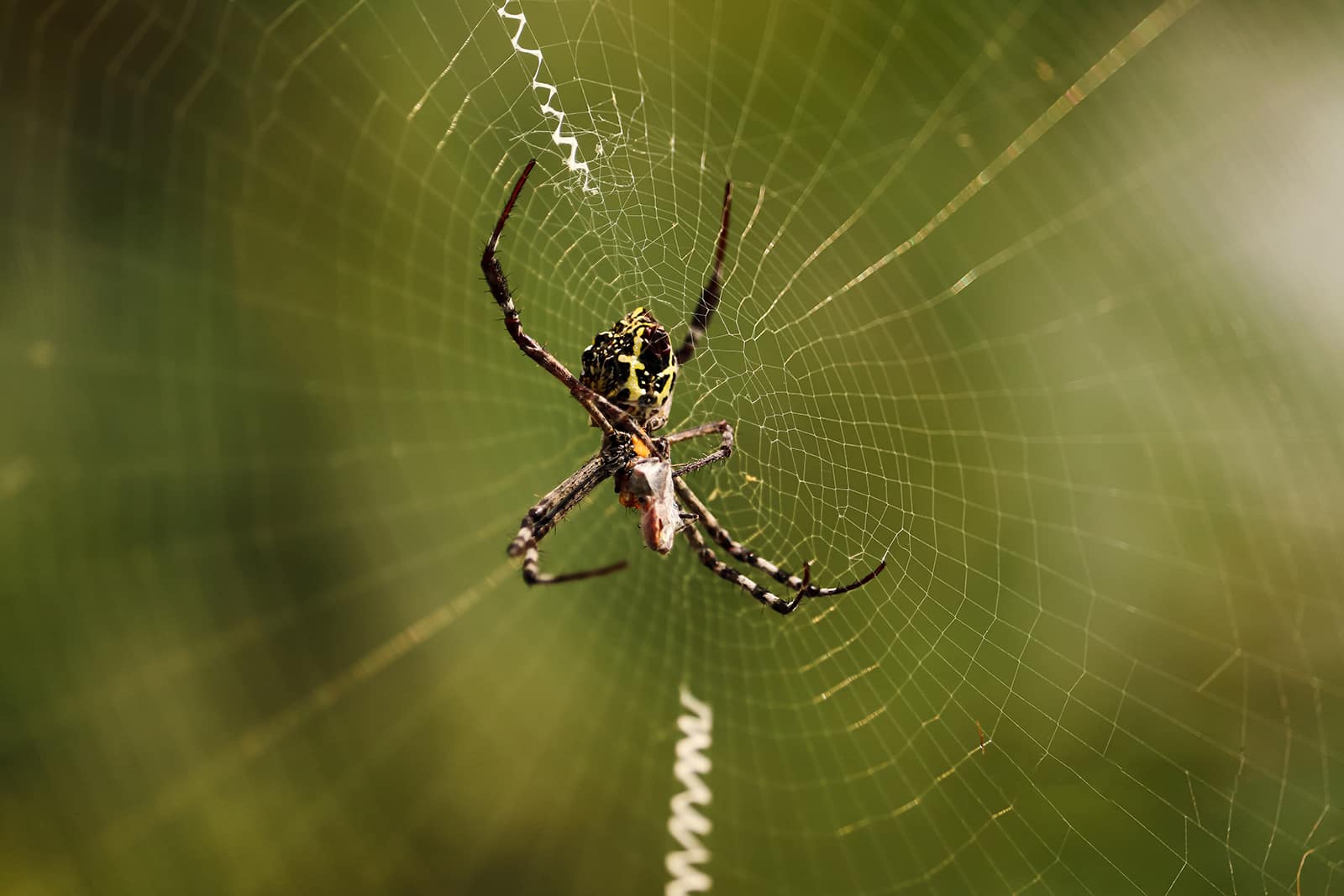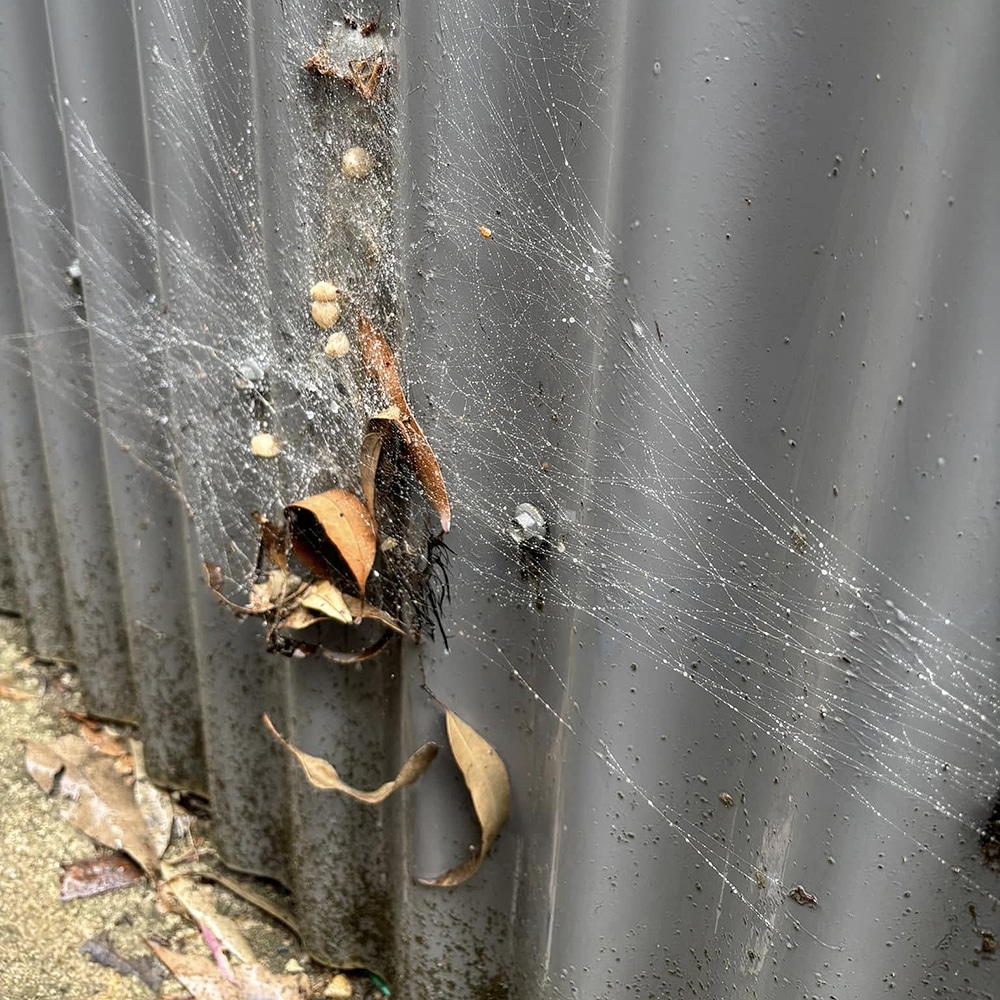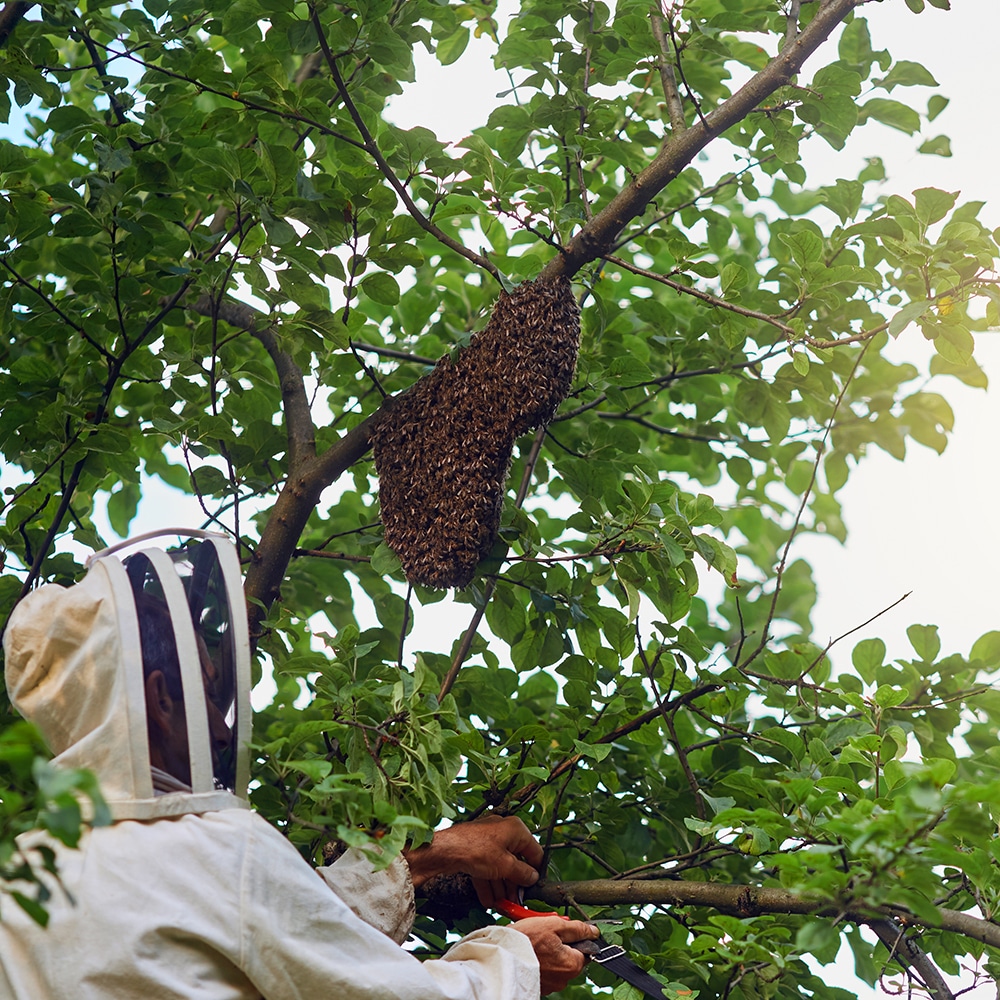
Why Do Spiders Come Back And Why
Why Do Spiders Come Back And Why On The Central Coast NSW. Responsive Proactive Solutions. Detail-focused for lasting results. Call Adam on 0431 222 894
Looking to learn how to get rid of spiders in the garage and shed? You’re in the right place. Spiders often find garages and sheds irresistible due to the clutter and the abundance of hiding spots. If you’re on the Central Coast NSW and need help, check out Vital Pest Control for reliable and trustworthy pest solutions. Let’s dive into practical tips to keep your spaces spider-free.
Why Spiders Like Garages and Sheds
Spiders love garages and sheds for their dark, quiet environments. These spaces often have plenty of nooks and crannies, ideal for web-building. Stored items can attract other pests, providing food for spiders. Keeping these areas clean can reduce spider presence.
Best Ways to Seal a Garage from Spiders
Sealing gaps is crucial in preventing spider entry. Check garage doors, windows, and any vents. Use weather stripping and caulk to close off cracks and openings. This action reduces not only spiders but other pests too.
How to Safely Remove Spider Webs in Garages
Use a vacuum with a hose attachment to remove webs. This method ensures you capture the spiders as well. Regular cleaning disrupts their habitat, making it less appealing for them to return.
How to Organize Storage to Prevent Spiders
Keep boxes off the floor and use clear, plastic containers. This makes it harder for spiders to hide. Regularly rotate stored items to minimise undisturbed spaces. Organisation deters spiders from settling in.
How to Get Rid of Spider Egg Sacs in Sheds
Promptly remove egg sacs when spotted. Use a broom or vacuum to carefully dispose of them. This action prevents future infestations by stopping the next generation of spiders.
Best Commercial Spider Sprays for Garages
Choose sprays specifically designed for spiders. Look for reputable brands available in Australia. Apply these around entry points and common nesting areas for maximum effectiveness.
How to Use Insecticides Safely in Storage Spaces
Always follow the instructions on insecticide labels. Ensure proper ventilation when applying. Keep insecticides away from children and pets. Safety precautions ensure effective and safe use.
How to Prevent Spiders from Nesting in Old Boxes
Avoid using cardboard boxes for storage. Opt for plastic bins with tight-fitting lids. This change reduces spider nesting spots, keeping your storage safer.
Discover how we can help you today! Visit our Contact page for more information.

Garages and sheds in Central Coast NSW provide an ideal habitat for spiders. These spaces offer protection and seclusion, making them attractive to these eight-legged creatures. Understanding why spiders favour these locations can help in effectively managing and reducing their presence.
Dark and Quiet Environments
Spiders thrive in dark, quiet places, making garages and sheds perfect for nesting. These areas are often undisturbed, allowing spiders to spin webs and hunt without interruption. The lack of human activity provides a safe haven, enabling them to flourish.
Abundance of Prey
Garages and sheds often house insects like flies and moths that spiders feed on. Storing garden tools or leaving doors ajar can inadvertently invite these insects inside. Spiders are attracted to these spaces, drawn by the promise of a steady food supply.
Clutter and Storage
Stacked boxes, unused items, and clutter create excellent hiding spots for spiders. These conditions offer numerous crevices and corners for spiders to conceal themselves and lay eggs. Reducing clutter can significantly diminish the appeal of these spaces to spiders.
Spiders love making homes in dark, quiet places, and your garage is a prime target. Keeping these eight-legged guests out involves a few strategic steps. Ensuring your garage is sealed properly can greatly reduce spider infestations, making your space more comfortable and safer.
Inspect and Repair Cracks
First, examine your garage for cracks and gaps. Spiders can slip through tiny openings, so sealing these is crucial. Use caulk or weatherstripping to close any gaps around windows, doors, and the garage floor. Pay attention to areas where utilities and plumbing enter the garage, as these can be overlooked but are common entry points for spiders.
Install Door Sweeps
Garage doors often leave a gap at the bottom, which is an open invitation for spiders. Installing a door sweep can block this entryway effectively. Choose a durable material that withstands wear and tear, ensuring a long-term solution. This simple addition not only deters spiders but also helps keep other pests at bay.
Utilise Natural Repellents
Essential oils like peppermint and eucalyptus are natural spider deterrents. Spray a mixture of these oils and water along entry points and in corners where spiders are likely to hide. Regular application will maintain a scent barrier, making your garage less inviting to spiders without using harmful chemicals.
Spider webs in garages can be a nuisance, but removing them safely ensures a cleaner, more inviting space. Vital Pest Control on the Central Coast NSW provides effective strategies to tackle this issue without harming the environment or yourself.
Identify Web Locations
First, inspect your garage to identify where spiders build their webs. Look in corners, ceilings, and around stored items. Spotting these webs early helps you target specific areas and prevent spiders from settling in.
Use the Right Tools
A vacuum cleaner with a hose attachment efficiently removes webs without spreading dust. For higher ceilings, an extendable duster can reach tough spots. Ensure the tools are clean to prevent spreading allergens or dust.
Wear Protective Gear
When tackling spider webs, wear gloves and long sleeves to protect against potential spider bites. Spiders may still be hiding in their webs, so it’s wise to be cautious during removal.
Dispose of Webs Properly
After removing the webs, dispose of them safely. Seal them in a bag and discard them with your regular rubbish. This prevents any surviving spiders from returning to your garage.
Prevent Future Webs
To stop webs from forming again, consider sealing cracks and using natural deterrents like peppermint oil around entry points. Regular cleaning deters spiders from nesting, keeping your garage spider-free.
Spiders are unwelcome guests in many garages and sheds, especially on the Central Coast of NSW. They often find refuge in cluttered spaces. By organising storage effectively, you can significantly reduce the chances of spiders making a home in your space.
Keep Items Off the Floor
Elevating boxes and containers from the floor is a smart move. Use shelves or racks to store items higher up. Spiders love to hide in dark, untouched areas. Keeping things off the ground reduces these hiding spots, making them less likely to linger. Consider transparent containers for better visibility and less appeal for spiders.
Avoid Cardboard Boxes
Cardboard boxes tend to attract spiders due to their dark interiors and ability to retain moisture. Instead, opt for plastic storage bins with tight lids. These bins are not only more durable but also less inviting to spiders. Seal them properly to further discourage any critters from sneaking inside.
Regular Decluttering
Make it a routine to declutter your garage or shed. Regularly sorting through items and getting rid of unnecessary clutter reduces potential spider habitats. Clean and vacuum often, especially in corners and behind stored items, to remove any webs or egg sacs that may have appeared.
Dealing with spider egg sacs in sheds can be a daunting task, especially on the Central Coast NSW where spiders are common. These sacs can lead to infestations if not handled quickly. Understanding how to effectively remove them is crucial for maintaining a spider-free environment.
Identifying Spider Egg Sacs
Spider egg sacs often appear as small, white, or off-white, silk-wrapped bundles. They are usually tucked away in corners or hidden in crevices. Recognising these sacs is the first step in addressing the problem. Regular inspections of the shed can help spot these sacs before they hatch, preventing a potential spider outbreak.
Safe Removal Techniques
Once identified, removing spider egg sacs requires care. Use a vacuum with a hose attachment to suck up the sacs, ensuring no eggs are left behind. If a vacuum isn’t available, a broom with firm bristles can help dislodge them. Be sure to dispose of the vacuum bag or debris outside the property to prevent re-infestation.
Preventative Measures
To stop spiders from laying eggs in your shed, maintain a clean and clutter-free space. Seal gaps and cracks where spiders might enter. Regularly dust and sweep to discourage spiders from nesting. These preventative measures can help keep your shed spider-free and reduce the likelihood of encountering egg sacs in the future.
Spiders in the garage can be a nuisance, especially on the Central Coast of NSW where the climate invites a variety of creepy crawlies. For those managing commercial properties or larger spaces, choosing the right spider spray is crucial. Effective solutions not only keep the arachnids at bay but also ensure safety and ease of use.
Considerations for Commercial Spaces
When selecting a spider spray for commercial garages, it’s essential to consider the size of the area and the frequency of use. Larger spaces may require a more potent formula or a spray with a wide coverage. Additionally, consider the spray’s safety for non-target animals or humans, especially if the garage is frequently accessed by workers or clients.
Top-Rated Spider Sprays
Among the best options for commercial garages are sprays that combine fast-acting and long-lasting effects. Look for brands that offer proven results in pest control, like those containing bifenthrin or deltamethrin. These active ingredients are known for their effectiveness against spiders, ensuring that once applied, the area remains spider-free for extended periods.
Eco-Friendly Options
For those concerned about the environment, explore eco-friendly spider sprays. These often use natural ingredients such as peppermint oil, which can deter spiders without harmful chemicals. While they may require more frequent application, they provide a safer alternative for environmentally conscious businesses.
Using insecticides safely in storage spaces is crucial for effective pest control, especially when dealing with spiders. Vital Pest Control on the Central Coast NSW offers valuable insights into maintaining safety while ensuring these areas remain pest-free.
Choose the Right Insecticide
Not all insecticides suit every situation. Select products specifically labelled for indoor use to prevent harmful fumes. Research and choose options that target spiders, ensuring your efforts are efficient. Using the wrong product can lead to ineffective results and potential hazards.
Follow the Manufacturer’s Instructions
Always adhere to the instructions on the insecticide label. These guidelines provide crucial information on dosage, application methods, and safety precautions. Ignoring these details increases the risk of accidents and reduces the effectiveness of the treatment.
Ventilation and Protective Gear
Ensure proper ventilation in storage spaces when applying insecticides. Open windows or doors to allow fresh air circulation. Additionally, wear protective gear like gloves and masks to protect yourself from exposure to chemicals.
Safe Storage of Insecticides
After use, store insecticides in a secure, cool place away from children and pets. Proper storage increases the shelf life of the product and prevents accidental exposure. Always keep them in their original containers to ensure safety and easy identification.
Old boxes can be a haven for spiders, especially in garages and sheds. These areas often provide the perfect environment for spiders to nest. However, there are several strategies you can employ to keep these critters at bay and maintain a spider-free space.
Choose Plastic Containers
Replacing cardboard boxes with plastic containers can significantly reduce spider infestations. Unlike cardboard, plastic is less appealing to spiders and other pests. Ensure the lids are tight to prevent spiders from sneaking inside. By storing items in plastic containers, you create a barrier that is difficult for spiders to penetrate. Consider labelling containers for easy identification, making your storage both organised and pest-free.
Keep the Area Clean
A tidy space is less attractive to spiders. Regularly dust and vacuum your garage and shed, focusing on corners and hidden areas. Removing webs and egg sacs interrupts the spider life cycle, preventing further infestation. Additionally, disposing of unwanted items reduces clutter, leaving fewer places for spiders to hide and nest. Cleanliness acts as a deterrent, keeping spiders away naturally.
Use Natural Repellents
Essential oils like peppermint, tea tree, and eucalyptus can deter spiders. Dilute these oils in water and spray them around storage areas. These natural repellents emit strong scents that spiders dislike, encouraging them to avoid the area. Regularly applying these sprays can maintain a spider-free zone without using harsh chemicals, promoting a safer environment in your garage and shed.
Spiders in garages can be a persistent issue on the Central Coast, NSW. Knowing how often to treat your garage for spiders can help maintain a spider-free environment. Vital Pest Control offers insights into effective treatment schedules to protect your space.
Understanding Spider Habits
Spiders often enter garages seeking shelter and food. The frequency of treatment depends on the spider species and environmental conditions. Regularly treating your garage, especially during warmer months, can reduce spider activity. Observing spider activity can help in determining when treatments are necessary.
Seasonal Considerations
Spring and summer typically see increased spider activity. During these seasons, a monthly treatment schedule is advisable. As temperatures drop, bi-monthly or quarterly treatments might suffice. Adjusting treatment frequency according to seasonal changes ensures effective spider control.
Signs You Need Treatment
Look for webs, egg sacs, or increased spider sightings as indicators for treatment. If these signs are present, consider scheduling a professional pest control service. Prompt action can prevent larger infestations and maintain a safer environment.
Professional Versus DIY Treatments
While DIY solutions can be effective for minor issues, professional treatments provide comprehensive coverage. Vital Pest Control offers tailored solutions that target specific spider species common to the Central Coast, ensuring peace of mind and effective results.
Spiders often find their way into garages and sheds, but with some simple strategies, you can keep these eight-legged creatures at bay. On the Central Coast of NSW, where the climate is ideal for spiders, taking preventive measures is crucial for a spider-free environment.
Seal Cracks and Gaps
Spiders love to sneak through small cracks and gaps in your garage or shed. Inspect the structure for any openings and seal them with caulking or weatherstripping. By reducing entry points, you’ll deter spiders from making their home inside your space.
Use Essential Oils
Essential oils like peppermint or eucalyptus can act as natural deterrents. Spiders dislike strong scents, so mix a few drops with water and spray it around doors, windows, and corners. Reapply every few weeks for continued protection.
Maintain a Tidy Exterior
Keep the area surrounding your garage or shed tidy. Remove leaves, grass, and wood piles that provide ideal hiding spots for spiders. Regular maintenance of the exterior reduces the chance of spiders venturing indoors.
Install Door Sweeps
Door sweeps prevent spiders from crawling under doors. Install them on all entry doors to your garage or shed. This simple addition creates a barrier that is difficult for spiders to cross.
Garages on the Central Coast NSW often become spider havens, raising questions about why these spaces attract more arachnids than other rooms. Understanding the reasons behind this can help in effectively managing and reducing spider populations.
Dark and Undisturbed Areas
Garages usually provide dark, quiet corners where spiders thrive undisturbed. Unlike living rooms or kitchens, these spaces see less human activity, making them ideal for spiders to spin webs and hunt for food. The lack of frequent cleaning or movement encourages spiders to settle and breed in peace.
Abundance of Prey
Spiders are drawn to garages due to the availability of prey like insects. Cars and gardening equipment often bring in bugs, providing a constant food source for spiders. The presence of other insects is a strong lure, encouraging spiders to set up residence where they can easily capture meals.
Varied Temperatures and Humidity
Garages offer a range of temperatures and humidity levels that appeal to different spider species. The fluctuating environment provides suitable conditions for spiders to adapt and survive. This variety in climate within the garage makes it more attractive than other rooms with more controlled conditions.
Dealing with spider infestations in garages and sheds can be a hassle. Many homeowners on the Central Coast NSW consider foggers as a potential solution. These devices release insecticide into the air, aiming to eliminate pests. But do foggers really work for spider problems?
Effectiveness of Foggers
Foggers can target various insects, but their effectiveness on spiders is limited. Spiders tend to hide in corners, behind objects, and in crevices, making it difficult for the fog to reach them. Unlike insects that breathe through their bodies, spiders rely on a different respiratory system, reducing the impact of foggers.
Safety Considerations
Using foggers requires caution. They release chemicals into the air, which can linger and pose health risks. Ensure proper ventilation and follow the manufacturer’s instructions. Avoid using them in enclosed spaces without adequate airflow, and keep children and pets away during and after use.
Alternative Solutions
For effective spider control, consider integrated pest management. This approach includes sealing entry points, regular cleaning, and using targeted sprays or traps. Professional pest control services provide thorough inspections and customised treatment plans, ensuring long-term solutions to spider infestations.
Maintaining the right humidity in your shed is crucial to deterring spiders. These creepy crawlies thrive in damp environments, so reducing moisture can make your shed less inviting. Not only does this help keep spiders at bay, but it also protects tools and materials from rust and decay.
Improve Ventilation
Good airflow can significantly reduce humidity levels in your shed. Consider installing vents or windows that can be opened to allow fresh air in. This circulation helps dry out any existing moisture and prevents new dampness from settling. Regularly opening doors and windows for a few hours can also make a difference, especially on dry, windy days.
Use a Dehumidifier
If your shed still feels humid, a dehumidifier can be a great investment. These devices draw moisture from the air, making the environment less appealing to spiders. Choose a model suitable for the size of your shed, and remember to empty the water collection tray regularly to keep it running efficiently.
Seal Cracks and Gaps
Spiders often enter sheds through small openings. Sealing cracks and gaps not only keeps spiders out but also helps control humidity by preventing moisture from seeping in. Use weather stripping or caulk around windows and doors, and inspect the shed for any structural weaknesses that need attention.
Lighting plays a crucial role in managing spider populations around your garage and shed. By understanding how spiders are attracted to light, you can implement effective strategies to reduce their presence. This approach not only helps in keeping these areas spider-free but also contributes to a more pleasant and safe environment.
Understanding Spider Attraction to Light
Spiders are often drawn to light sources because these areas attract insects, which are their primary food source. When you leave exterior lights on, it creates a welcoming zone for insects, and in turn, spiders follow. By examining your lighting setup, you can reduce this attraction and manage spider activity more effectively.
Opt for Motion-Sensor Lights
Consider installing motion-sensor lights around your garage and shed. These lights only activate when movement is detected, reducing the constant attraction of insects and spiders. This simple change can significantly lower insect activity, making your space less appealing to spiders.
Use Yellow or Sodium Vapour Lights
Switching to yellow or sodium vapour lights can be beneficial. These types of lights are less attractive to insects, which means fewer spiders will follow. By choosing the right type of lighting, you can create an environment that discourages both insects and spiders from lingering.
Garages and sheds often become havens for spiders. To maintain a spider-free space, regular cleaning is crucial. This not only keeps spiders at bay but also creates a more organised environment. Follow these steps to effectively clean your garage and shed, ensuring they remain spider-free.
Declutter Regularly
Begin by removing unnecessary items. Spiders love hiding in cluttered spaces, so regularly sorting through your belongings can prevent infestations. Donate or dispose of items you no longer need. Use transparent storage boxes to keep things organised, making it harder for spiders to find hiding spots. This also allows you to easily inspect and maintain cleanliness.
Seal Cracks and Gaps
Inspect your garage and shed for any cracks or gaps where spiders might enter. Seal these openings using caulk or weather stripping. Pay attention to windows and door frames as these are common entry points. Regular maintenance of these seals not only keeps spiders out but also improves insulation and energy efficiency.
Maintain a Regular Cleaning Schedule
Establish a routine cleaning schedule. Sweep floors and dust shelves to remove webs and eggs. Use a vacuum with a hose attachment to reach corners and ceilings. Regular cleaning disrupts spider habitats and deters them from returning. A tidy, well-maintained space is less inviting to spiders and other pests.
Please leave your details in the form and we will call you back the same day.
So that we can process your enquire efficiently please leave as many details as possible and upload any relevant images. (.jpg and .png format)

Why Do Spiders Come Back And Why On The Central Coast NSW. Responsive Proactive Solutions. Detail-focused for lasting results. Call Adam on 0431 222 894

Building a Long Term Residential Pest Protection Plan For Home Owners On The Central Coast NSW. Responsive Proactive Solutions. Detail-focused for lasting results. Call Adam on 0431 222 894

How to Protect Your Home from Wasp Infestations On The Central Coast NSW. Responsive Proactive Solutions. Detail-focused for lasting results. Call Adam on 0431 222 894